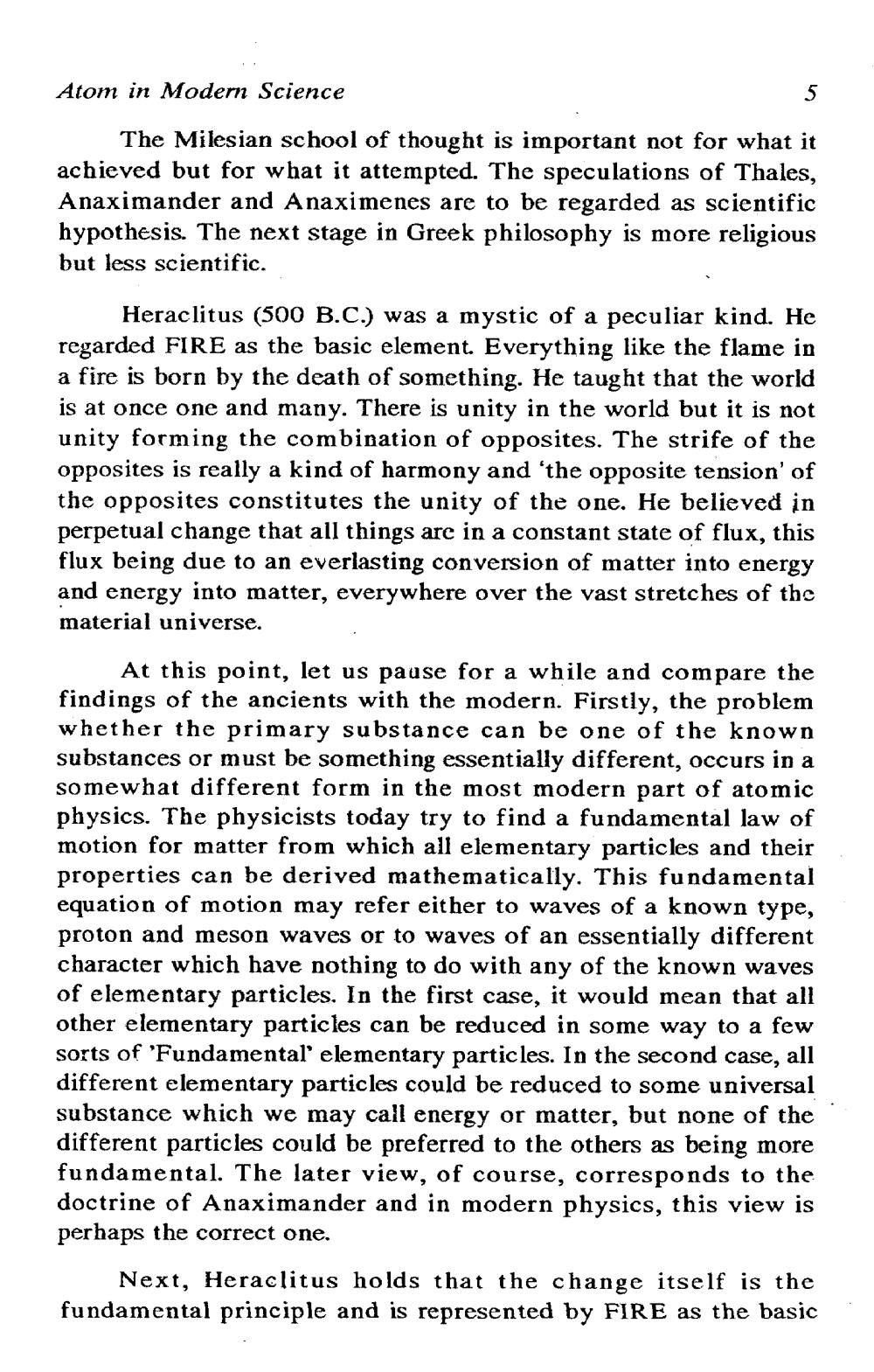________________
Atom in Modern Science
The Milesian school of thought is important not for what it achieved but for what it attempted. The speculations of Thales, Anaximander and Anaximenes are to be regarded as scientific hypothesis. The next stage in Greek philosophy is more religious but less scientific.
Heraclitus (500 B.C.) was a mystic of a peculiar kind. He regarded FIRE as the basic element. Everything like the flame in a fire is born by the death of something. He taught that the world is at once one and many. There is unity in the world but it is not unity forming the combination of opposites. The strife of the opposites is really a kind of harmony and 'the opposite tension' of the opposites constitutes the unity of the one. He believed in perpetual change that all things are in a constant state of flux, this flux being due to an everlasting conversion of matter into energy and ene
nergy into matter, everywhere over the vast stretches of the material universe.
At this point, let us pause for a while and compare the findings of the ancients with the modern. Firstly, the problem whether the primary substance can be one of the known substances or must be something essentially different, occurs in a somewhat different form in the most modern part of atomic physics. The physicists today try to find a fundamental law of motion for matter from which all elementary particles and their properties can be derived mathematically. This fundamental equation of motion may refer either to waves of a known type, proton and meson waves or to waves of an essentially different character which have nothing to do with any of the known waves of elementary particles. In the first case, it would mean that all other elementary particles can be reduced in some way to a few sorts of 'Fundamentali elementary particles. In the second ca different elementary particles could be reduced to some universal substance which we may call energy or matter, but none of the different particles could be preferred to the others as being more fundamental. The later view, of course, corresponds to the doctrine of Anaximander and in modern physics, this view is perhaps the correct one.
Next, Heraclitus holds that the change itself is the fundamental principle and is represented by FIRE as the basic




